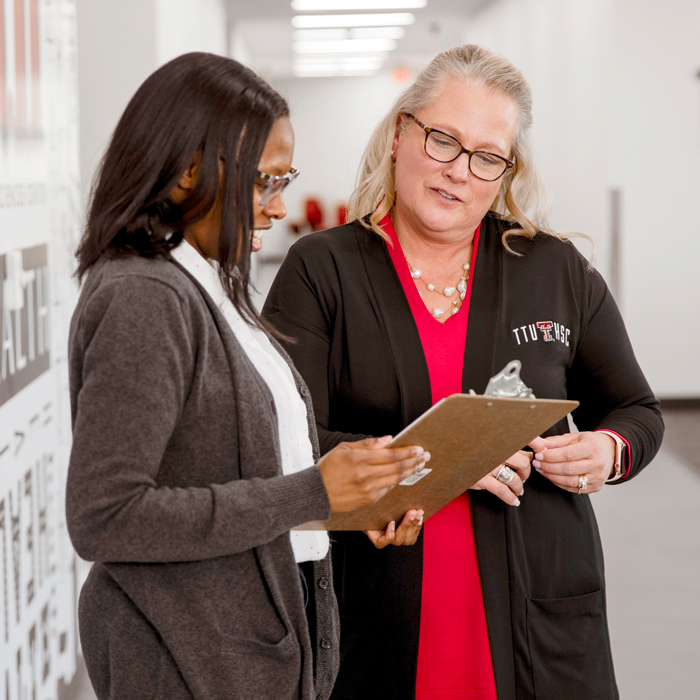 SCHOOL OF HEALTH PROFESSIONS
SCHOOL OF HEALTH PROFESSIONSRural Health Care for
People with Disabilities
Taryn Richardson, PhD, NCC, CRC, an assistant professor in the Department of Clinical Counseling and Mental Health, said the issues faced by those delivering care in rural areas and persons with disabilities in rural areas can intersect and overlap. With geographic roadblocks, transportation can prove challenging in both cases. For those with disabilities, the challenges don’t end once they reach their destination.
“For example, if they have a visual impairment, are there any resources in braille that they can take home?” Richardson “If they have a hearing disability or are deaf, are there interpreters available for services?”
“They may face instances when accessible resources are not supplied to help them to understand the care they are receiving.”
Persons with disabilities face physical barriers and issues with accessibility. Mentally, there is more. Although subtle, Richardson said they may face anxiety when having to go to a crowded facility.
In Richardson’s area, behavioral health and counseling, there is one goal in mind — “being able to enhance the quality of life for persons with disabilities in their communities.” Her area of expertise can’t do it alone,“We are one piece of a person’s overall well-being.”

That is why it is essential for there to be awareness and advocacy, according to Richardson.
“Engaging with the community, and finding ways to adapt within the legal limits are vital,” she said. “Persons with disabilities want their voices to be heard with new policies and rehabilitation needs.”
“If we have people who feel well, they are more likely to participate in their community. If we support the needs of our clients and patients, it will come back to us (positively) in the long run.”